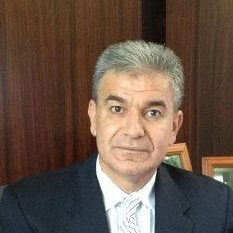
I just came back from a trip to Russia. Back in 2006 and 2007, I had traveled to Russia frequently as the lead for the Cadastre Development Project. This time - as a Global Lead for Land and Geospatial at the World Bank - I saw something I did not expect to see.
Privatization of real-estate properties and protecting property rights had become two important pillars of transformation following the end of the Soviet era. But, while they were important policy goals in the 1990s, the system did not really function properly: rights were not fully protected and people waited for many months to register property transactions.
In 2006, however, the Russian Federation embarked on a major program to modernize and digitize cadastre and property registration and unify them under a single agency, Rosreestr. I believed that, for a country as large as Russia, the transformation program would take 20-30 years before we would see visible changes.
I was therefore much surprised to see that change took place much sooner. In less than 10 years, Russia has managed to complete registration of all private properties – all 160 million of them!
Other important changes include the following:
- Reduction in the time required to register property transactions – down to 8 days – less than the 10 days required by law;
- The modernization of IT systems, thanks to open source software, including the establishment of a digital archive in record time;
- The rollout of digital services, including electronic transactions for all services;
- An impressive 95% customer satisfaction with Rosreestr services; and
- The integration of Rosreestr services into the Multi-Functional Centers (MFCs) that offer a “one-stop shop” concept for delivering government services.
During my last visit, I was very interested to learn why Russia had managed to achieve something no other country has achieved in such a short timeframe. Let me share with you some of the lessons - and four factors - that I believe contributed to this success.
Political commitment
We talk a lot about political commitment in successful programs. In this case, it came from the highest level of government. I was told in 2006 that when the President of Russia met with the leadership of Rosreestr and asked them to complete the program in seven years, top management told him it was impossible to do so in such a short timeframe given the complexity of the program and the huge size of the country. Subsequently, a new management team took over, and the President allocated US$1 billion to complete the program, which was also supported by the World Bank.
Institutional reform
Russia used to have one agency for cadastre mapping and another for property registration. In the course of implementation, it was clear that a lack of coordination between the two agencies contributed to inefficient and slow implementation. A presidential decree was then signed to combine three institutions: property registration, cadastre, and cartography.
Citizen participation
Russia has established a unique structure to oversee public services – namely the Public Councils. Each government agency that serves the public has a Public Council, composed of public service users. The cadstre/property registration agency has a Public Council at the national level, and each region has a Public Council at the regional level.
Members of the Council include professors, real estate agents, surveyors, bankers, developers, and other citizen representatives. Councils undertake client surveys, identify bottlenecks and propose changes to procedures, as well as laws. During my recent visit, I met with the St. Petersburg Regional Department of Rosreestr, for example, which was also attended by the chair and members of the Public Council who shared with me examples of how - through their constant feedback - Rosreestr was able to improve the services delivered.
Decentralization of implementation
While the program was guided at the national level, activities of the program and decision-making were decentralized to regional officials. Empowering local officials has brought the government closer to citizens and ensured full ownership of the program at the local level.
Nevertheless, the property registration agency believes they can do even better. They want to be one of the top five cadastre/registration agencies by Doing Business ranking in 2018. And, based on what I saw when there, I have little doubt they can achieve it.


Join the Conversation